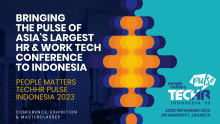How technology is changing HR practices

Technology has changed every aspect of business, so it’s no surprise it has had a huge impact on the human resources domain as well. Disruptive technologies are fundamentally reshaping the way we work and how we think about HR practices. Indeed, technology is playing a vital role as a strategic enabler to make key organizational decisions and take employee experience to the next level.
HR analytics continues to mature. HR professionals and executives are increasingly using a data-driven approach to create actionable insights and make decisions around budgetary planning, promotions and compensation, development and success planning, and agile cross-functional team staffing.
Automation and digitization are no longer solely about improving efficiencies and reducing cost and turnaround time. Their scope is not limited to a few processes within HR but span across the entire employment lifecycle. Leading companies are pursuing automation and digitization, as well as artificial intelligence (AI) and augmented and virtual reality (AR and VR) advancements, keeping the employee at the center. It’s about being connected, transparent, personalized, interactive and fast. All these components together create an employee-centric digitalized experience.
Recruitment and onboarding
AI is making it easier to find skilled people who are a great fit for the company. AI-based sourcing, assessment, screening, interviewing and candidate experience management are changing the landscape of the recruitment function. Candidate relationship management platforms are a crucial part of any recruitment marketing effort. AR and VR are being used by organizations to showcase their global campuses to new employees from their induction room, enhancing their onboarding experience.
Learning experience
Learning technologies are constantly evolving. There are several tools available for reskilling and continuous upskilling. Learning experience platforms are now being complemented with collaborative learning, video authoring, AI-based content recommendations, inferred and self-described skills assessment, and micro-learning tools. VR technology is making the training experience better and more effective.
Employee engagement
Tools for employee surveys and feedback are turning into “action platforms” that collect information and turn it into actionable recommendations for managers. There are innovative “listening platforms” that go beyond pulse surveys and enable employers to obtain real-time employee feedback in a consistent fashion. Organizations are increasingly using AI-powered chatbots to craft a better employee experience — to serve as an advisor to employees, assist with simple administrative tasks and provide support around digital services.
Culture building
Legacy reward practices are being reimagined by using AI to help employers build a culture of appreciation and recognition. Performance management and goal-setting tools help harness employee potential and provide them with well-defined touch-points and career milestones. Cloud-based software-as-a-service (SaaS) solutions offer a great way for organizations to embrace remote work and actively build a culture of collaboration. Visual storytelling, videos and internal social media tools are integral to delivering personalized communication to employees, coupled with measurement of content consumption to understand which communications strategies are working and optimizing their message and approach.
Fast-changing technology trends will continue to disrupt HR practices and redefine the future of the HR function. HR professionals must stay ahead of the learning curve to leverage technology to drive real value to the business and enhance employee experience.















